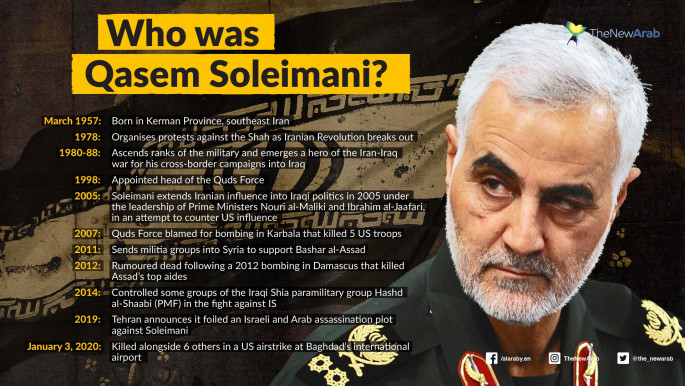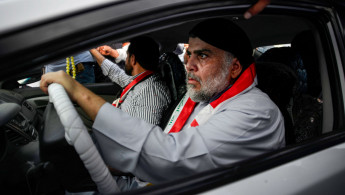Iraqi armed factions mobilise meeting to begin 'anti-US resistance fight'
"We will regroup the forces of the resistance in a single entity to respond to Washington," said Nasr al-Shammary, deputy head of the Harakat al-Nujaba group.
Nujaba, backed by Iran and fiercely opposed to the United States, is one of the most hardline factions of Iraq's Hashd al-Shaabi military network, which has been incorporated into the state.
The Hashd's deputy chief, Abu Mahdi al-Muhandis, was killed in the American precision strike on Friday that also killed Iranian commander Qasem Soleimani.
Soleimani was known as the "godfather" of Iran's allies abroad, who broadly identify as the "resistance axis".
"The American aggression against the Hashd al-Shaabi has marked the beginning of the war against the resistance," Shammary said in his statement.
The statement did not identify the factions invited but it was expected the Hashed's pro-Iran factions and forces loyal to cleric Moqtada Sadr would attend.
Sadr has reactivated his notorious Mahdi Army, the militia that fought US troops after their 2003 invasion, calling for the formation of "international resistance regiments."
Read more: Iraq parliament demands foreign troops expulsion after Soleimani killing
Qais al-Khazali, a paramilitary leader and bitter rival of Sadr's, echoed his call and threatened the US that his forces would "turn the skies above you into hell."
In his statement, Shammary said the "resistance" would respond across the region, and said his group was already in touch with Iran-backed Lebanese movement Hezbollah.
"We will wage a war against the American presence in all parts of the region that we can reach," he said, describing the US embassy in Baghdad as a "den of spies".
"Thousands of marines are present in possible targets," he said.
Iran has already vowed "vengeance" for Soleimani, who was mourned by unprecedented crowds across the country Monday.
On Tuesday, thousands of Iraqis also accompanied a funeral procession that brought Muhandis's remains to his native Basra, an oil-rich southern city, chanting "Death to America!"
The Hashd said his remains had been briefly taken to Iran for DNA testing to separate them from those of Soleimani as the US drone strike had dismembered their bodies.
Like many Shia Muslims, Muhandis would ultimately be buried in the Iraqi shrine city of Najaf in what is known as the largest cemetery in the world.
Following his death, Iraqi parliamentarians voted in favour of ousting foreign forces.
Trump warned Iraq he would levy punishing sanctions if Baghdad expelled American troops in retaliation for the US airstrike that killed Soleimani.
"We will charge them sanctions like they’ve never seen before," he told the press. "It'll make Iranian sanctions look somewhat tame. If there’s any hostility, that they do anything we think is inappropriate, we are going to put sanctions on Iraq, very big sanctions on Iraq," he said.
"We're not leaving until they pay us back for it," he added.
On Monday, the Pentagon admitted that a top US general had mistakenly informed the Iraqi government that his troops were preparing to withdraw.
Meanwhile, a number of coalition members, including Canada and Germany, confirmed they would move their troops to Kuwait temporarily.
On the other hand, France and Italy said they would remain in the country and had no intentions of moving.
US and allied foreign troops in Iraq are concerned they might be targeted by Iran or allied Iraqi militias in retaliation for Friday's killing in Baghdad of the chief of Iran's Revolutionary Guards who commanded Iran's operations across the Middle East.





 Follow the Middle East's top stories in English at The New Arab on Google News
Follow the Middle East's top stories in English at The New Arab on Google News
![The UAE is widely suspected of arming the RSF militia [Getty]](/sites/default/files/styles/image_330x185/public/2024-11/GettyImages-472529908.jpg?h=69f2b9d0&itok=Yauw3YTG)
![Netanyahu furiously denounced the ICC [Getty]](/sites/default/files/styles/image_330x185/public/2024-11/GettyImages-2169352575.jpg?h=199d8c1f&itok=-vRiruf5)
![Both Hamas and the Palestinian Authority welcomed the ICC arrest warrants [Getty]](/sites/default/files/styles/image_330x185/public/2024-11/GettyImages-2178351173.jpg?h=199d8c1f&itok=TV858iVg)